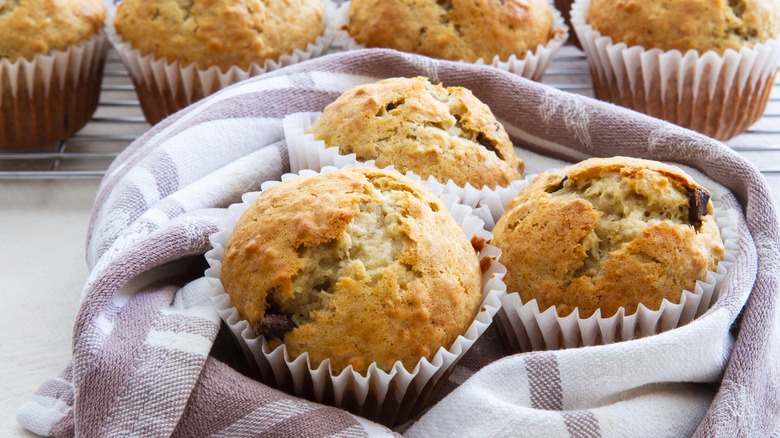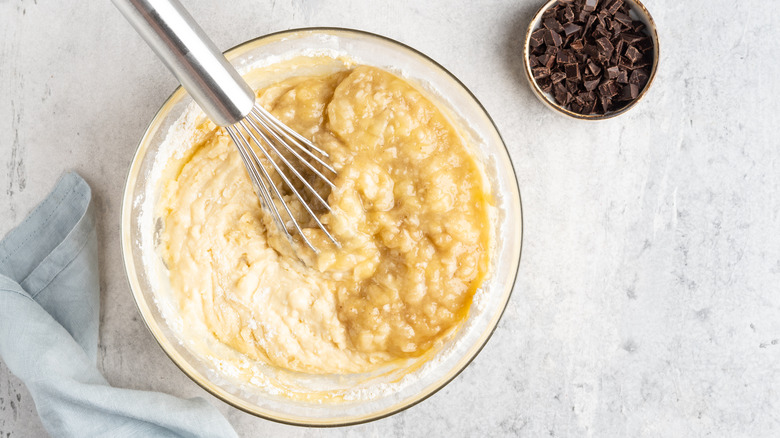What Happens If You Overmix Muffin Batter?
Muffins are a treat and sometimes the perfect indulgence for your morning meal. Whether fresh out of the oven or toasted and buttered, muffins make for a comforting start to the day and a great pairing with a cup of home-brewed coffee. There are just some mornings when all you want is something soft, sweet, and maybe even loaded with bananas. So muffins really do fit that bill.
A huge appeal of muffins as breakfast treats comes from their soft, cake-like texture (per The Kitchn). Muffins should be sumptuous, not a thick, dry, gummy mass that starts to feel like work halfway through. After all, this is basically breakfast cake, or in some cases pie, and filled with all of the sweetness of their dessert counterparts. You just have to make sure to create your muffins as good as you would want your cake to be. If you don't want an untasty, dense result, you want to treat your muffin batter right. According to Quaker Oats, and one of the most common problems when making muffins is overmixing.
Overmixing batter can lead to tough muffins
Getting the right texture in your muffins partially comes from getting a good rise. Overmixing batter can inhibit that, ending with dense muffins instead of fluffy. This happens when you mix for too long. It can destroy air bubbles that are necessary for a light and airy texture (via The Kitchn). For any cakey baked goods, you should be incorporating that air while beating together your choice of fat, eggs, and sugar (or sugar substitute) before you fold the batter (via Good Housekeeping). Then, gently mix and fold in the flour, which helps preserve air bubbles for the tender muffins you want.
The second problem arising from overmixing your muffin batter comes courtesy of gluten. According to King Arthur Flour, gluten activation starts once you mix your liquid ingredients with flour, and any mixing or handling builds up the connective chains that make your batter chewy and tough. So while this may be good for dense baked goods like bread, it is bad for softer items like cakes and muffins. While mixing is a necessity for making muffins, you want to make sure to keep your motions light and slow and stop mixing as soon as the flour is fully incorporated. In fact, The Kitchn recommends that you stop mixing once all of the items are loosely mixed together. Muffins don't need tough love; just give them the ingredients they need to thrive and let your oven do the rest.

